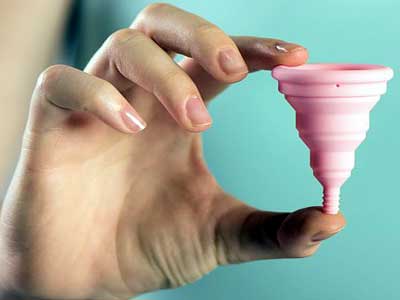For many young women living in Kenya, lack of access to menstrual hygiene products, including pads and tampons, can prevent them from attending school. Some girls and women engage in risky or coercive sex in order to obtain these products and are subsequently at an increased risk for contracting sexually transmitted infections.
While menstrual cups have been around for decades, they have recently gained popularity in the developed world as an alternative to pads and tampons, which contribute to waste in landfills. Made of high-grade silicone, the flexible cup is worn internally in the vaginal canal, where it collects menstrual flow. The contents can be discarded, and the cup can be washed and reused.

















Related Items
Ear Infections Can Lead To Many More Complications…
Tiny Antibiotic Beads Fight Infections After Joint Replacement
Most Dengue Infections Transmitted In And Around Home